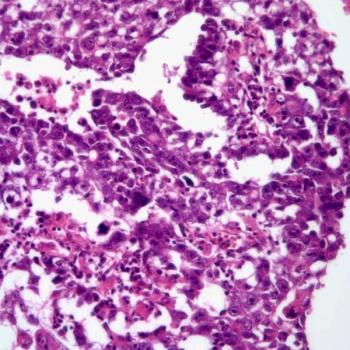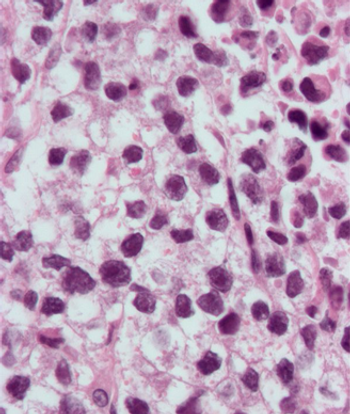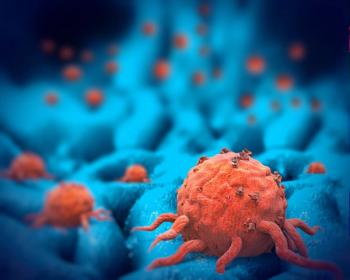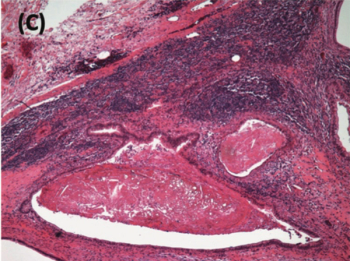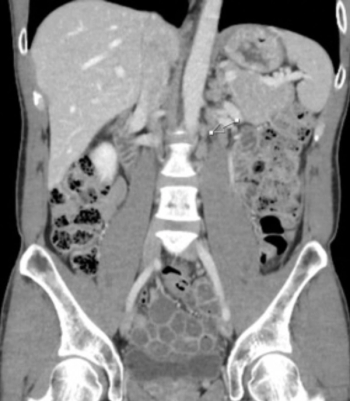
Oncology NEWS International
- Oncology NEWS International Vol 12 No 12
- Volume 12
- Issue 12
Treat Elderly Ca Patients Based on ‘Biologic Age’
This special supplement to Oncology News International presents 17 reports fromthe first annual Geriatric Oncology Consortium (GOC) multidisciplinary conference,‘‘Advancing Cancer Care in the Elderly.’’ Reports focus on issues in geriatric oncology,in particular team-based patient assessment and care delivery,adherence to medication, accrual to clinical trials, appropriate dosingthrough supportive therapy, radiation therapy, cognition problems, pain management,reassessment of outcomes, and caregiving issues.
NEW YORK-Cliniciansshould base cancer therapy decisionsnot on a patient's chronological age,but rather his or her "biologic age,"according to Irwin H. Krakoff, MD.Better criteria than simply "date ofbirth" should be used for both studyand treatment of cancer in the elderly,said Dr. Krakoff, adjunct professor ofmedicine at New York University CancerInstitute, New York, NY.Biologic Differences"We need to realize that theelderly...are not just people with grayhair, wrinkles, and a different date ontheir drivers license," Dr. Krakoff emphasized."There are biologic differences.Tumor types are different in theelderly compared with younger people,and their tolerances to therapyand their cure rates are different."Pediatric oncology experience providesa precedent for this perspective.Recently, Dr. Krakoff noted, investigatorshave recognized that childrenare "not merely small people" but arebiologically different from adults andtherefore have different tumor-typeincidences, therapy tolerance, and curerates-despite the fact that a tumormanifesting in a child may be morphologicallysimilar to the same tumorin an adult.Likewise, in the elderly, there arebiologic differences vs younger adults,leading to an increased incidence ofcertain tumors, decreased toleranceto aggressive therapy, and appearanceof tumors that do not occur in youngerpatients.Although it is tempting to use mereage as a landmark in defining "elderly,"one should bear in mind that manyindividuals considered elderly simplybecause they are 65 years of age orolder are still quite "biologically youthful,"said Dr. Krakoff. Conversely, headded, many patients who are not nearthe age at which they could collectSocial Security benefits are "old beyondtheir years" in terms of healthstatus.Treatment of cancers that occurcommonly in the biologically elderly,such as lung, pancreatic, or colorectalcancer, is still a difficult enterprise,Dr. Krakoff said, in contrast to themarked advances in treating cancersthat primarily affect younger patients,such as acute lymphoblastic leukemia,gestational trophoblastic tumors, andtesticular cancer. "Although we havehad some minor successes, seriousproblems remain," he added.Treatment ValidationStudies NeededThe dilemma is that cancer must bestudied in older patients if it is to beeffectively treated. In practice, Dr. Krakoffnoted, older patients receive treatmentthat has been validated in youngergroups, but unfortunately, theelderly are often specifically excludedfrom clinical trials per protocol. Likewise,outside of the experimental setting,elderly patients are frequentlyundertreated as well.To gain a better understanding ofhow the elderly might be treated, it isimportant to investigate the molecularbiology of cancer-specific aberrationsin specific tumors in elderly populations."The elderly have a greater proclivityto develop cancer, probably due tobiology we still don't fully understand,"Dr. Krakoff said. "I am veryoptimistic that the current emphasisand current explorations in molecularbiology and genetics are going to giveus further answers...I hope that we willbe able to cope not just with cancer inyoung or middle aged, but in the elderlyas well."
Articles in this issue
about 22 years ago
Delirium, Dementia, Apathy Require Individualized Treatmentabout 22 years ago
Single-Fraction RT Effective for Painful Bone Metastasesabout 22 years ago
Chemo-RT Before Surgery Ups Rectal Cancer Outcomesabout 22 years ago
Faster Radiation More Effective in Head and Neck Cancerabout 22 years ago
Aspirin Raised Pancreatic Ca Risk in Large Nurses’ Studyabout 22 years ago
Anemia Criteria in the Elderly:Is It Time to Re-Evaluate?Newsletter
Stay up to date on recent advances in the multidisciplinary approach to cancer.


